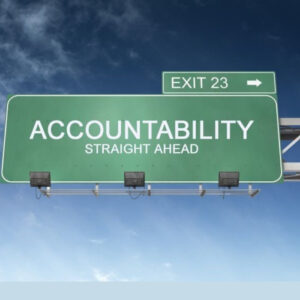How Long Do I Have to Sue for Work-Related Injuries?
Date: 06/30/2022
Author: Prime Law Group

In a single year, employers reported more than 100,000 non-fatal workplace injuries. If you get hurt on the job, you might wonder, “How long do I have to sue for work-related injuries?”
Read on to learn more about how long you have to sue for work-related injuries.
What Is Worker's Compensation Insurance?
No matter where you’re employed, you deserve access to a fairly safe place of work. Jobs like construction come with risks like using heavy machinery and working at great heights. Still, there are many steps employers can take to make sure that you’re safe on the job.
You or someone you care about could get hurt because of an unsafe work environment. If so, you should educate yourself about your rights as they pertain to worker’s compensation. You may find that you’re eligible for financial recovery.
Worker's Compensation Insurance Rules
According to the Illinois Worker’s Compensation Act, employers must carry worker’s comp insurance. The act protects the rights of injured workers to receive compensation for medical expenses. It also provides for lost wages because of a work injury.
Also, worker’s comp in Illinois is “no-fault.” This means that you’re entitled to compensation if you’re injured on the job, no matter who’s at fault.
Except in rare cases, the act also prevents employers from getting sued.
Understanding the Worker's Comp Statute of Limitation
The Illinois Worker’s compensation Act includes a statute of limitation. This limitation is a deadline for filing your worker’s comp claim.
There’s a limited amount of time you can apply for worker’s compensation after getting injured. If you don’t file within this timeframe, you could miss out on vital benefits.
For instance, you’ll no longer have eligibility to get paid for lost wages. You also won’t have eligibility for reimbursement for medical expenses, even if your injuries are permanent.
Staying Focused After an Injury
A work injury can cause financial, mental, and physical harm. These combined injuries can send your life into a tailspin.
Fortunately, Illinois worker’s comp law entitles you to benefits if you get hurt at work. However, you don’t receive those benefits automatically.
If you’re hurt at work, the most important thing is to recover your health. However, it’s equally as important to ensure you receive the compensation to which you’re entitled as soon as possible.
An well-qualified attorney can help get started by answering any questions. They’ll also recommend the best actions to take to support your case.
Am I Eligible for Worker's Comp?
The purpose of worker’s compensation is to provide you with benefits if you’re injured. This injury must come from a direct result of your employment.
For instance, you might suffer a physical injury while working on company property. Otherwise, you could become sick because of your work environment.
However, not every work-related scenario qualifies for worker’s compensation benefits. For example, if you voluntarily attend a company party or picnic, you don’t qualify for worker’s comp—unless your job ordered you to attend.
You also don’t qualify for worker’s comp if the accident occurred while under the influence of alcohol or drugs. In addition, if you were performing an illegal activity at work, you can’t receive worker’s comp benefits.
What Does Worker's Comp Cover?
Worker’s comp may offer a wide range of benefits. These benefits might include:
- Death benefits
- Disability for permanent injuries
- Disability for temporary injuries
- Medical expenses
Temporary disability benefits cover your lost wages while you’re recovering. If your injury is permanent, however, those temporary payments may turn into long-term payments.
In either case, you’d receive a percentage of your previous wages. With this in mind, your disability benefit amount directly correlates to your salary.
How Long Do I Have to Sue for Work-Related Injuries?

In Illinois, you must report when you’re injured to your employer within 45 days. It’s highly ill-advised to wait longer.
If you do, the insurance company will most likely deny your claim. They may also argue that you may have suffered your injury at any point between the “supposed” injury and the date you reported the injury.
Furthermore, an insurer can argue that your condition has most likely worsened. Because you waited so long, they can claim your failure to report and manage your injury made it worse, and your oversight is now solely your responsibility.
Filing Your Worker's Comp Claim
It’s important to understand that reporting your injury isn’t the same as filing a worker’s comp claim. Filing a claim is necessary if you don’t receive a sufficient or fair amount of benefits.
In Illinois, the statute of limitation limits worker’s compensation claims to two years from the last date you receive disability pay. The same applies to the last medical bill you paid for the injury.
You can file a worker’s compensation claim three years from the date of your injury. The statute of limitation that relates to your situation is whichever time is the longest.
An Exception to the Rules
There’s an exception to this part of the Illinois worker’s comp rules. For instance, you may have previously received worker’s compensation benefits due to an injury.
In that case, you’ll have two years from the date you received the last worker’s comp payment to file a claim. Typically, this date is the last time you receive disability benefits or pay a medical bill.
With this in mind, it’s possible three years have passed since you experienced your accident. However, if you received worker’s comp benefits in the last two years, you’d still have time to file a claim.
No matter your situation, it’s always a good idea to file a claim. Your employer or insurer won’t do it for you.
Should I File a Worker's Comp Claim?
Often, employers tell employees they’re not eligible for worker’s compensation. They might cite the nature of the injury or the employee’s employment status.
However, these suggestions aren’t always true. In this way, employers and insurers talk hard-working employees out of receiving their rightfully earned worker’s comp benefits. For instance, an employer or insurer might give an injured worker inaccurate or incomplete information about their available coverage.
Some people wait months or years to file a worker’s compensation claim for this reason. Because they received false information, they never knew they had the right to make a claim. That’s why it’s always a good idea to work with an expert that understands worker’s comp regulations in Illinois.
Worker's Comp and Pre-existing Conditions
In some instances, you may experience filing delays. This is another good reason to file your claim as soon as possible. For example, you may have a repetitive stress injury or a pre-existing injury.
An arthritis repetitive stress injury could take years before it starts to hurt so much it interferes with your job. Here, the statute of limitation for filing worker’s comp would likely start on the date your doctor diagnoses you with work-related arthritis.
It can also prove challenging to pinpoint the date pre-existing injuries have become worse. In many cases, an employee might not file a claim until after several doctor’s visits.
What to Do if You're Hurt on the Job
It doesn’t cost anything to file a worker’s comp claim. If you hire an attorney, most good attorneys work on a contingency basis. This means if you don’t get paid, they don’t get paid.
There’s no drawback to reporting your injury immediately. You should file your worker’s compensation claim as soon as possible after you experience an injury.
Following Up With Your Injury
If you get hurt at work, you should notify your supervisor at once. You should also seek medical treatment as soon as possible. In this way, you’ll ensure you treat and document your injuries appropriately.
Again, your first priority is always to address your injury. However, immediate medical treatment also ensures you receive the maximum benefits for which you’re qualified.
If you’re hurt at work, it’s in your best interest to retain the representation of an experienced worker’s compensation attorney. They can help you protect your rights and ensure you receive maximum compensation.
Holding the Right People Accountable

Usually, worker’s compensation covers your medical bills. It will provide compensation for about two-thirds of your lost income. However, worker’s comp doesn’t provide for pain and suffering.
Suppose you get injured because of an unsafe work environment. In that case, you may find you’re eligible to sue a party other than your employer. In this way, you can win added compensation for your injury.
Potential At-Fault Third-Parties
Here, you may want to think about the distributor, designer, or manufacturer of defective products. You could also find a machine operator to blame for your injuries.
Likewise, it’s possible a subcontractor or contractor is liable for your workplace accident. The same applies to another company doing work at your job site. Also, the owner of the property may hold responsibility for your injury.
Worker's Comp vs. Personal Injury
You could file a lawsuit against a third party if they caused your injury. In this case, you’d sue the third party and not your employer.
You could sue your employer if they intentionally caused your injury. For example, your employer may have assaulted you during an argument. In that case, you’re eligible to sue.
However, you cannot sue for employer negligence in Illinois. The employer must have intended to cause harm for the courts to find them liable for your injuries. Still, you can sue your employer for injuries if they don’t have worker’s compensation insurance as required by Illinois law.
Weighing the Pros and Cons
If you’re hurt at your place of work, you might also want to consider a personal injury claim. This kind of claim can provide you with a much larger settlement compared to worker’s compensation. With a personal injury claim, you could seek compensation for pain, suffering, and emotional damage.
It’s important to understand that a personal injury claim can take longer. Worker’s compensation is a no-fault system. Conversely, the personal injury process may involve several defenses and counter-arguments.
Also, with a personal injury claim, you must work with a lawyer. Your lawyer will build your case. They’ll also prepare for any defenses your employer or a third party might provide to avoid liability.
Finding an Attorney to Fight for Your Rights
If you’re injured on the job, you have more options than simply turning to your loved ones. For instance, you may have considered filing a worker’s compensation claim. In that case, it’s in your best interest to consult with an experienced worker’s compensation attorney.
An experienced attorney specializing in worker’s compensation can help you in many ways. For instance, they can file your claim with the Illinois Worker’s Compensation Commission.
A lawyer can also help you determine how much to request in your claim, as well as the amount you should seek to negotiate a settlement. Furthermore, your lawyer will find all the evidence needed to support your case.
Find Out Where You Stand Today
Now, you better understand the answer to, “How long do I have to sue for work-related injuries? If you get harmed at work, it’s essential to know your rights and understand what worker’s comp covers.
In some instances, the statute of limitation for filing for a worker’s compensation can prove tricky. If you have any questions or concerns, it’s best to speak with an experienced attorney.
At Prime Law Group, we want to help you get back on your feet. Contact us today for a free consultation to find out where you stand.






